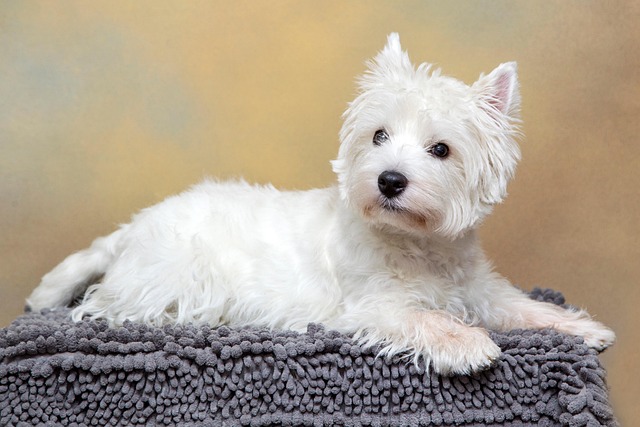
Will pumpkin help a dog pass obstruction?
When a dog that is usually lively and active suddenly loses its appetite, becomes listless, or even vomits frequently, every pet owner will be worried that it is intestinal obstruction, a "health killer".
The dog at home is our closest companion, and they accompany us through countless happy times. However, when a dog enters its senior years, it may be troubled by dementia, which not only affects their life but also deeply concerns the owner. Among these issues, the problem of night - time sleep is particularly prominent. Watching the dog restlessly pacing around and having difficulty falling asleep at night, our hearts are filled with distress. So, how exactly can we help a dog with dementia sleep peacefully at night? This is a question that every dog - loving owner is eager to know.
When a dog develops dementia, also known as Canine Cognitive Dysfunction (CCD), there will be a series of obvious behavioral changes. They may forget commands that they were once familiar with. For example, they used to respond immediately when called by their name, but now they show no reaction. They may also exhibit a lack of direction at home, often getting lost in a familiar environment and unable to find their kennel or food bowl. In terms of personality, a dog that was originally gentle and friendly may become irritable and anxious, and be indifferent to the owner's touch and calls. These changes make the dog we know seem like a different one, and also make us realize that they are facing huge challenges.
Sleep is crucial to a dog's health, but dementia severely disrupts their sleep patterns. Under normal circumstances, a dog's sleep cycle is different from that of humans. They experience multiple short - term sleep stages and rapid - eye - movement (REM) periods. However, in dogs with dementia, the nerve cells in the brain are damaged, leading to an imbalance of neurotransmitters. This directly affects their biological clock and sleep - regulating mechanism. They may wake up frequently at night and have difficulty falling asleep again. They may pace around the room and whine, not only exhausting themselves but also making it difficult for the owner to sleep.
To help a dog with dementia improve its night - time sleep, we can start from multiple aspects. First of all, a regular daily routine is extremely important for them. Try to take the dog for a walk, feed it, and play with it at the same time every day, allowing their body and brain to adapt to a stable rhythm. For example, take the dog out for a walk at 7 am every morning, feed it punctually at 8 pm, and have some light interactions, such as gentle stroking or playing with simple toys, an hour before bedtime. This regular life can bring a sense of security to the dog, reduce their anxiety, and thus help them fall asleep at night.
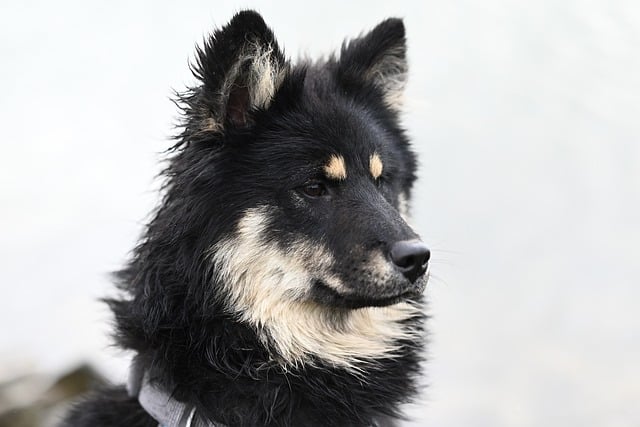 Optimizing the sleep environment cannot be ignored. Create a quiet, comfortable, warm, and dark sleeping space for the dog. Choose a soft dog bed and lay a familiar blanket on it to make the dog feel warm and at ease. If there are noise interferences at night, such as the sound of vehicles on the street or the noise from neighbors, sound - proof curtains can be used, or some gentle white noise, such as the sound of waves or rain, can be played to help the dog block out external disturbances and relax. At the same time, keep the room temperature appropriate, avoiding it being too hot or too cold, so that the dog can fall asleep in a comfortable environment.
Optimizing the sleep environment cannot be ignored. Create a quiet, comfortable, warm, and dark sleeping space for the dog. Choose a soft dog bed and lay a familiar blanket on it to make the dog feel warm and at ease. If there are noise interferences at night, such as the sound of vehicles on the street or the noise from neighbors, sound - proof curtains can be used, or some gentle white noise, such as the sound of waves or rain, can be played to help the dog block out external disturbances and relax. At the same time, keep the room temperature appropriate, avoiding it being too hot or too cold, so that the dog can fall asleep in a comfortable environment.
Diet adjustment is also a key part. Provide the dog with nutritious food, especially those ingredients beneficial to brain health. For example, foods rich in Omega - 3 fatty acids, such as salmon and fish oil, help maintain the normal function of brain cells, reduce inflammation, and are beneficial for improving the dog's cognitive ability and sleep quality. In addition, some foods containing antioxidants, such as blueberries and spinach, can help remove free radicals in the body and slow down brain aging, and can be appropriately added to the dog's diet. However, pay attention to controlling the food intake to avoid the dog's body burden from obesity.
Appropriate exercise has a positive impact on a dog's sleep. Taking the dog for moderate exercise during the day can not only consume their excess energy but also promote blood circulation and enhance physical fitness. Exercises can include walking, playing frisbee, or simple training games. However, pay attention to the intensity and duration of the exercise to avoid over - fatiguing the dog. For dogs with dementia, closely monitor their condition during the exercise process and give them enough rest time. For example, take the dog for a 20 - 30 - minute walk in the morning and evening respectively. Walk at a moderate pace, allowing the dog to explore the surrounding environment freely. This can meet their exercise needs without causing them too much stress.
In terms of psychological care, the owner's company and interaction are irreplaceable. After a dog develops dementia, it becomes more dependent on the owner psychologically. They need to feel the owner's love and support. Spend some time every day playing with and chatting to the dog. Even if they may not understand what you say, your voice and company can make them feel at ease. When the dog feels anxious or restless, gently stroke its head and back and comfort it in a gentle tone. This can effectively relieve their nervousness and make it easier for them to fall asleep.
If the dog's sleep problem is relatively serious and cannot be improved after trying the above methods, it is advisable to seek the help of a veterinarian. The veterinarian can prescribe some safe and effective medications according to the dog's specific condition, such as sedatives or medications to improve nerve function, to help the dog adjust its sleep. However, when using medications, strictly follow the veterinarian's instructions, pay attention to the dosage and frequency of the medications, and avoid adverse reactions.
Helping a dog with dementia sleep peacefully at night requires more patience, care, and love from us. Every dog is a precious gift in our lives. When they are troubled by diseases, we should be more persistent and give them all - round care. Through reasonable life arrangements, a comfortable sleep environment, a healthy diet, appropriate exercise, and attentive psychological care, we are confident that these lovely furry friends can also have a stable sleep during their illness and enjoy a happy old age. Let's work together to escort their health and happiness.

When a dog that is usually lively and active suddenly loses its appetite, becomes listless, or even vomits frequently, every pet owner will be worried that it is intestinal obstruction, a "health killer".
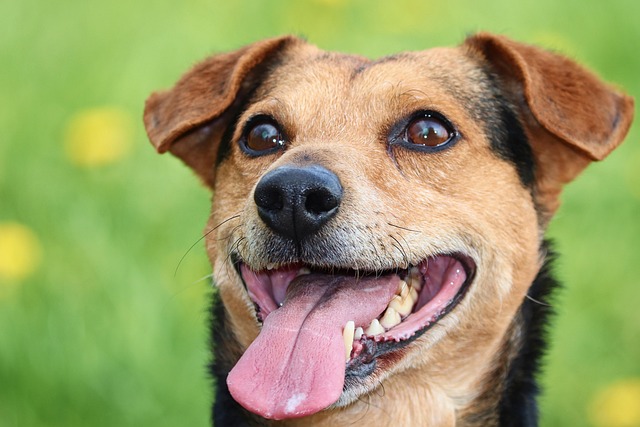
When we caress the furry ears of dogs and enjoy the warm moments of cuddling up with each other, our hearts are filled with happiness.
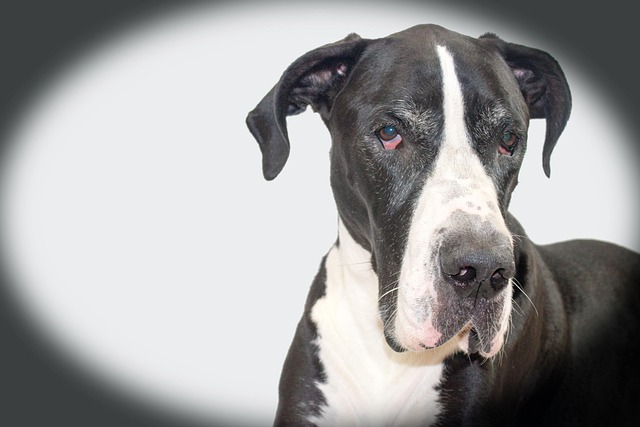
When we see the dog frequently shaking its head, scratching its ears, and even having red and swollen ears with an unpleasant smell,
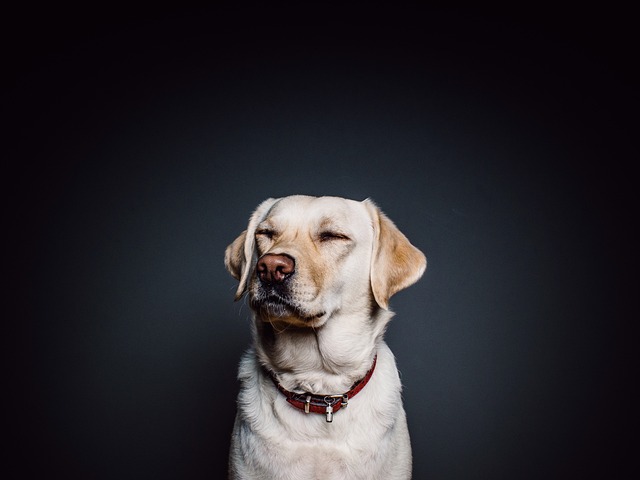
When we pick up the scissors and prepare to trim the hair of our furry babies at home, we are full of expectations and a little nervous. Looking at the trusting eyes of the dogs, we all hope to create a comfortable and beautiful look for them.
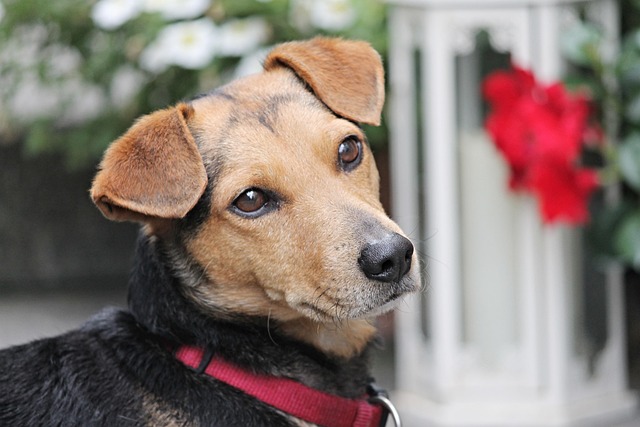
When the dog was found squatting in the corner, struggling hard but unable to excrete feces, its lively eyes were filled with discomfort and helplessness,

Watching the dog lying weakly on the ground due to diarrhea and vomiting, with its originally lively eyes losing their luster, every owner's heart feels as if it's being tightly gripped.